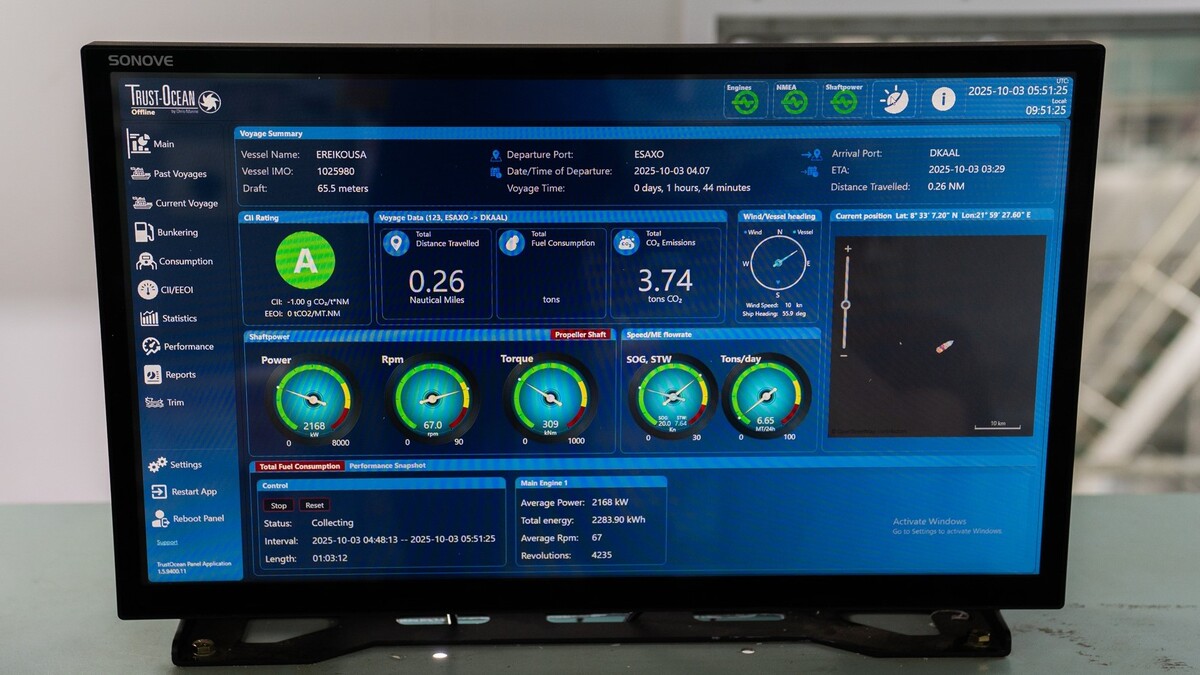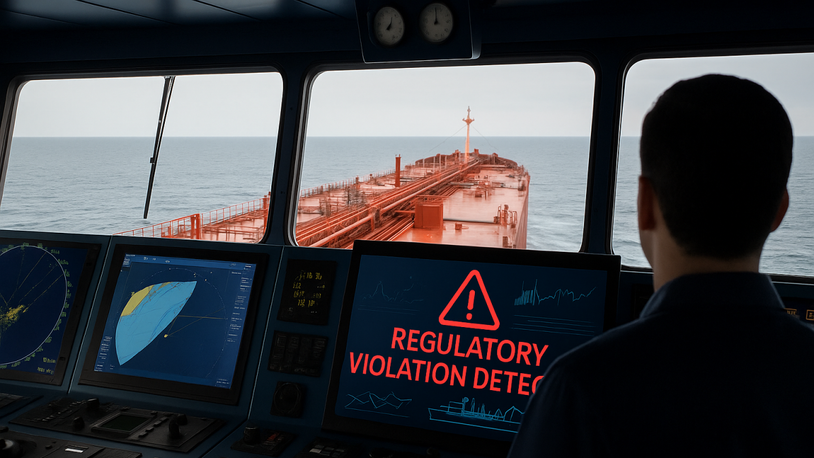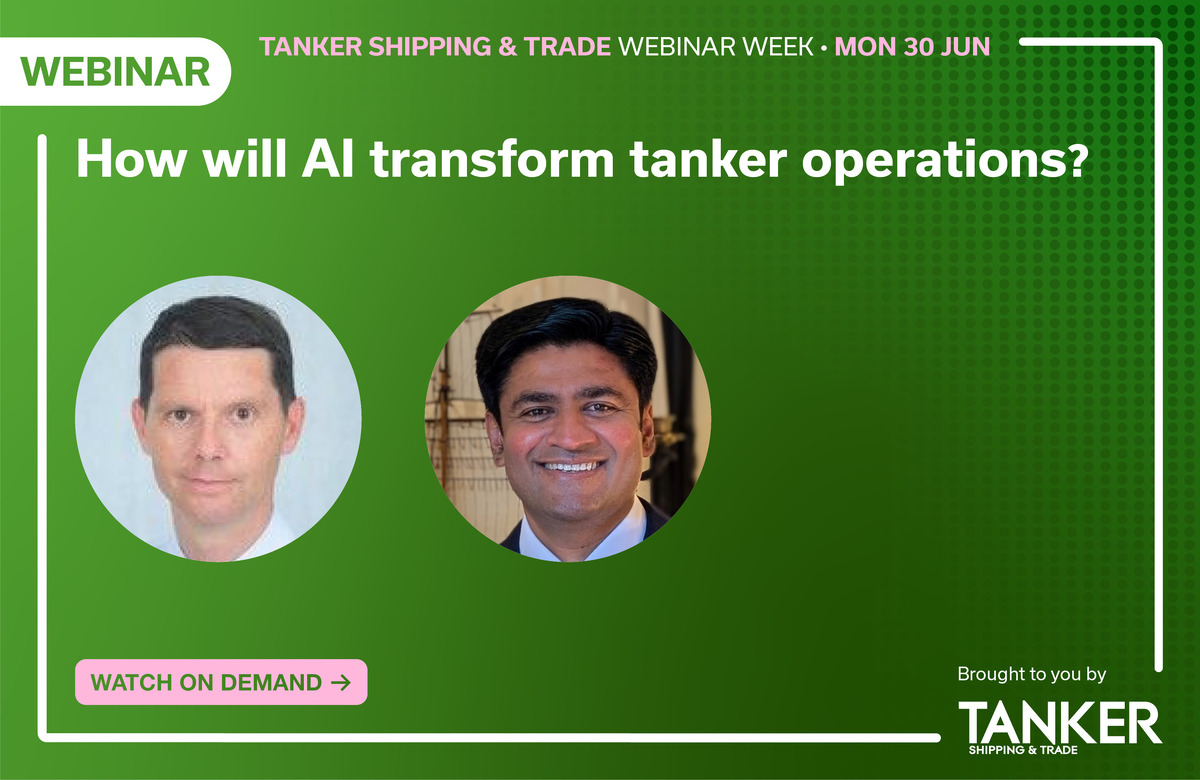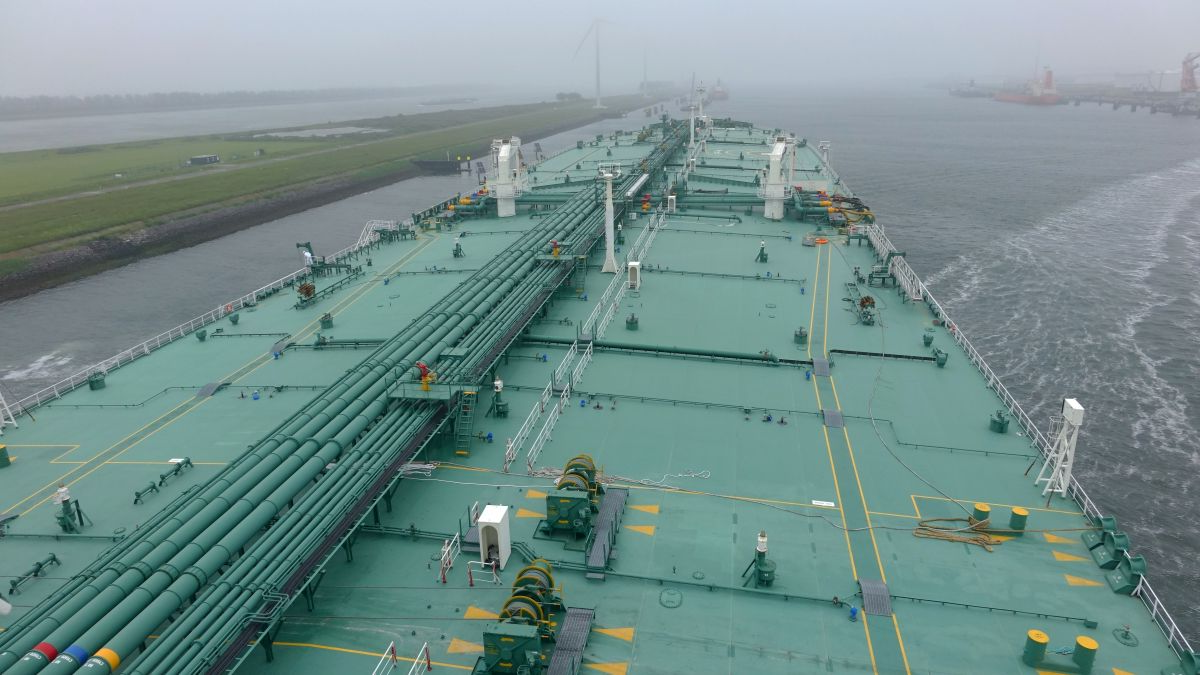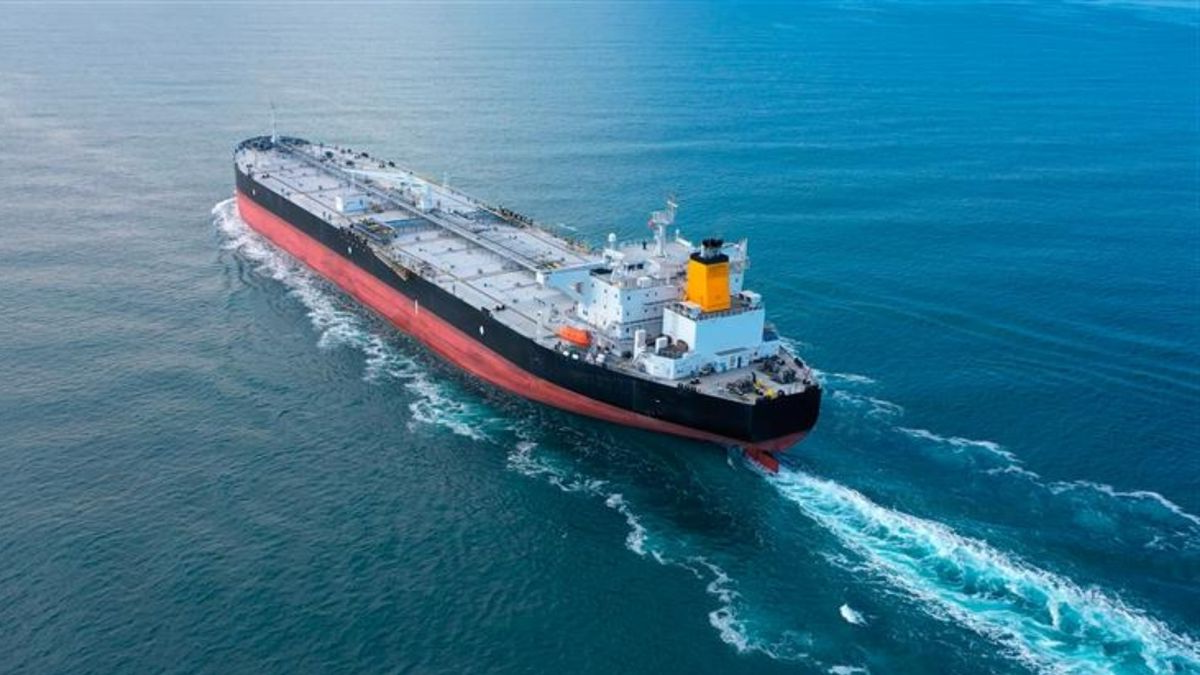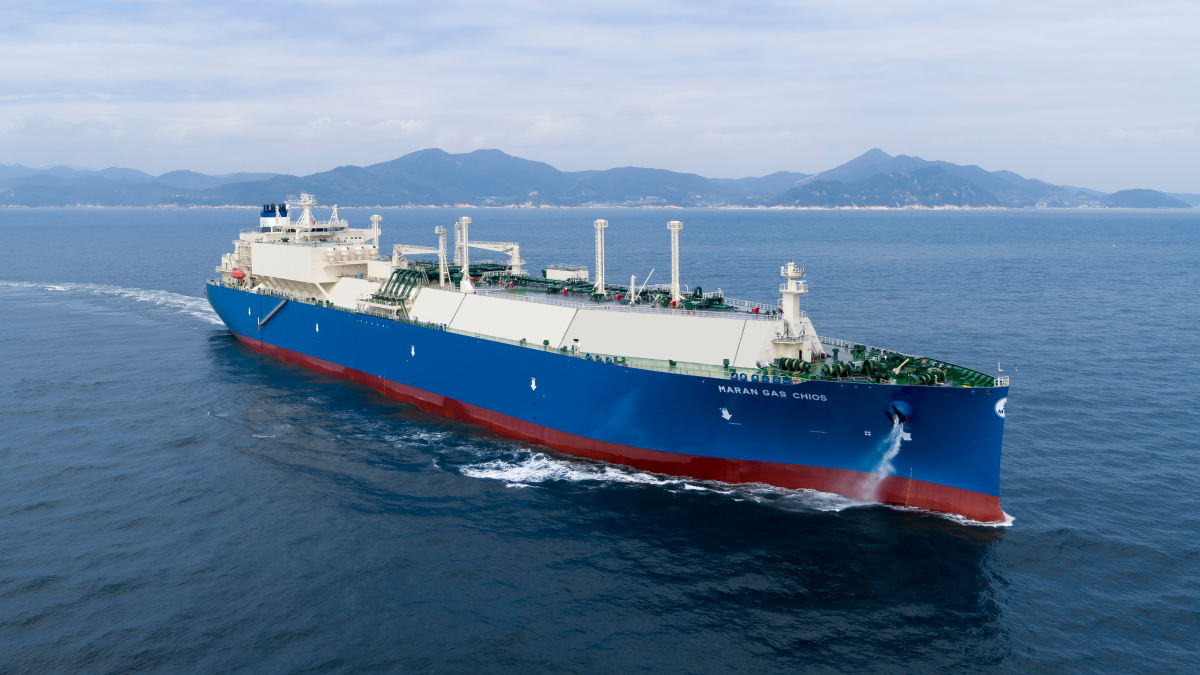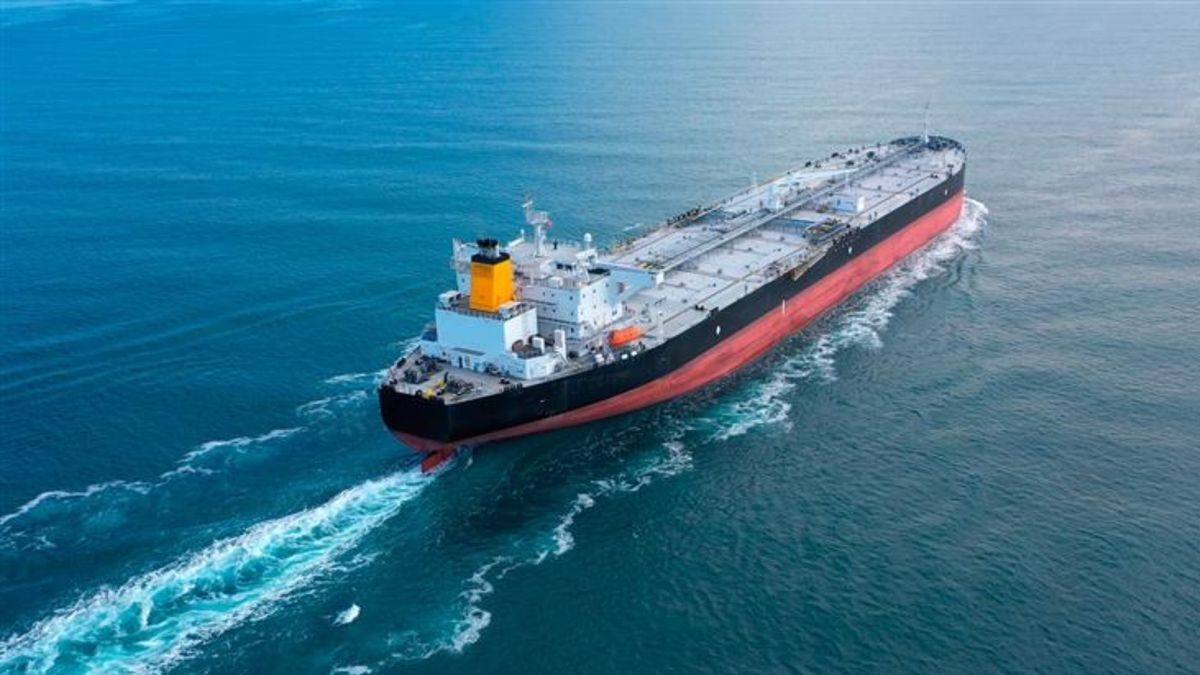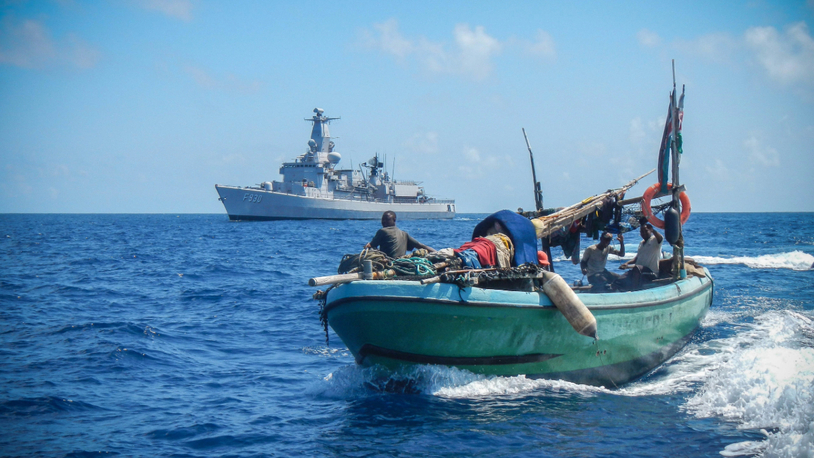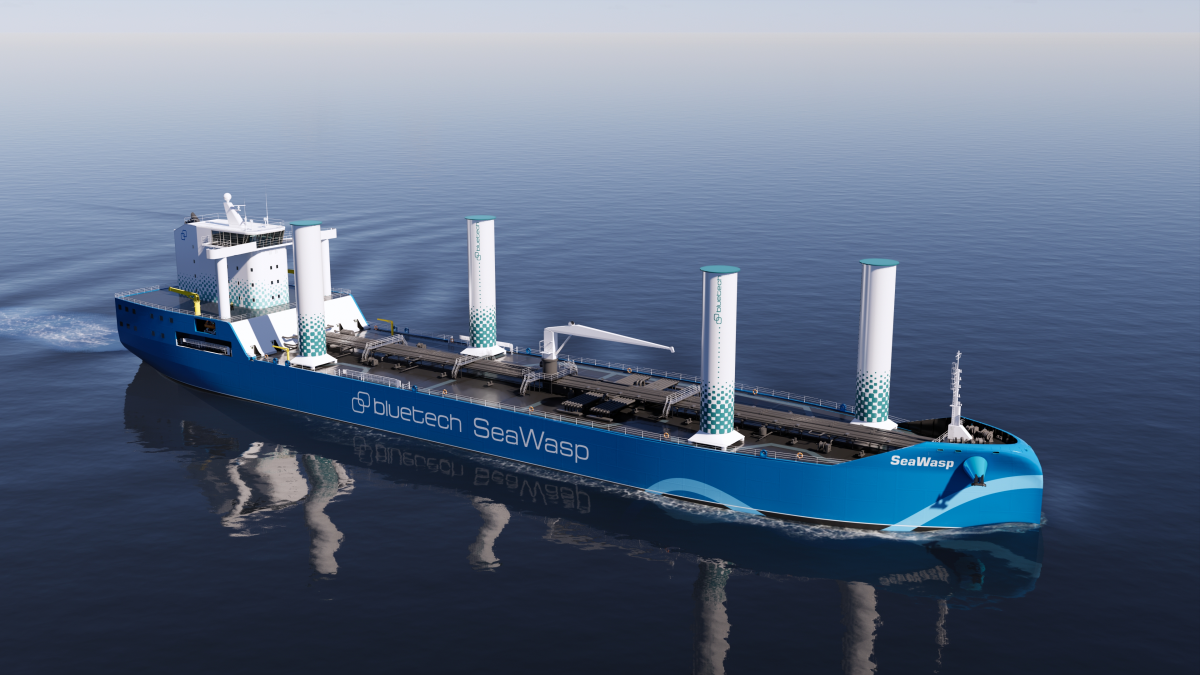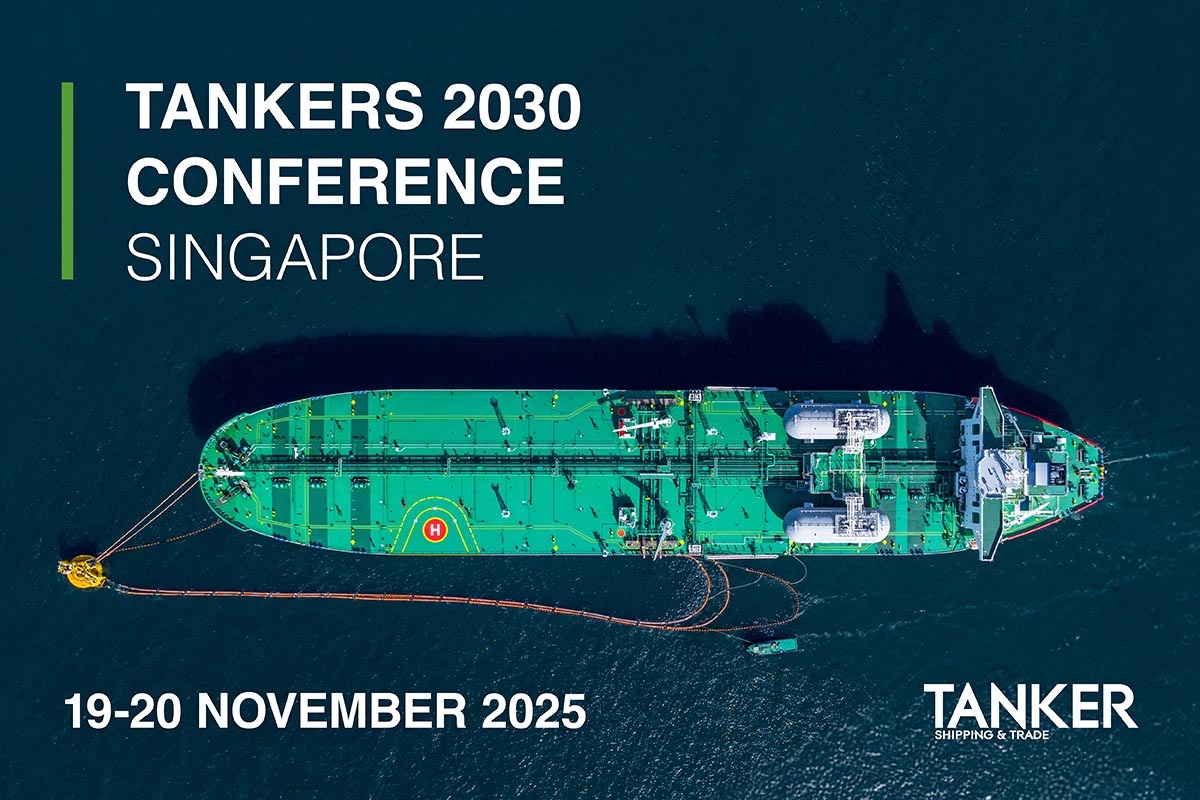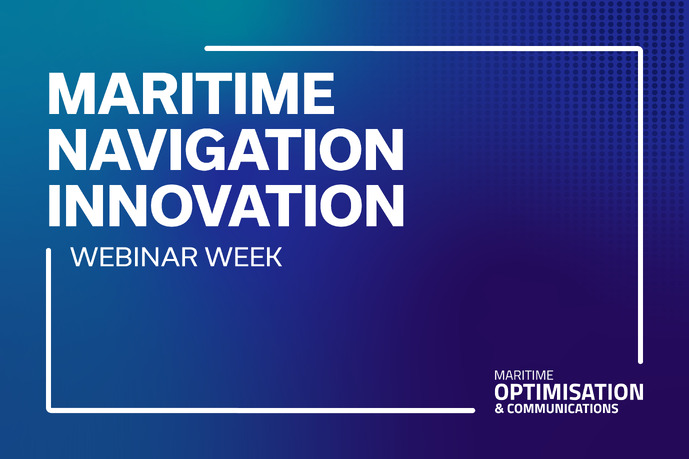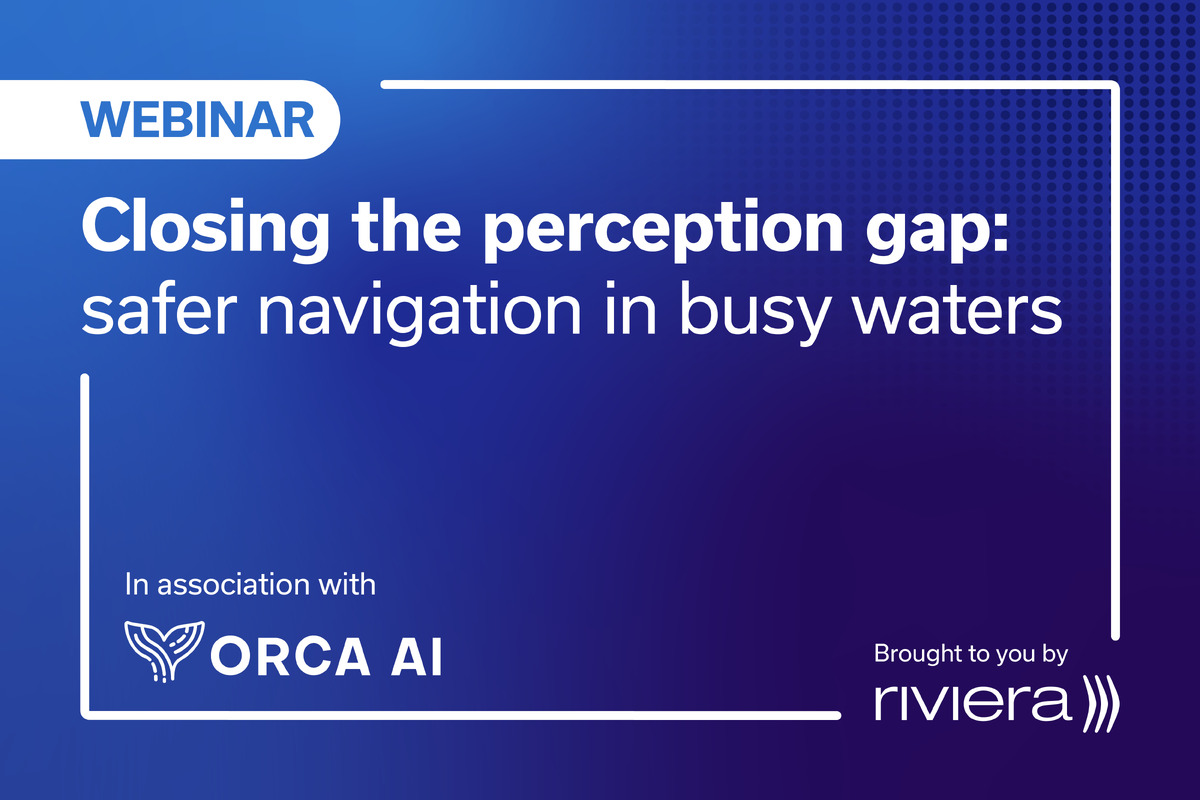Business Sectors
Contents
Register to read more articles.
AI seen as ‘smart colleague’ in tanker operations shift
Panellists at Riviera’s AI in Tanker Operations webinar examined AI as a decision-support tool, not a human replacement
Artificial Intelligence will not replace the human element in tanker operations, but should be considered a dependable colleague operating around the clock. That was the central view expressed during Riviera’s webinar How will AI transform tanker operations?, held on 30 June 2025.
Maris Investments chief executive officer Manish Singh captured the tone of the discussion in his keynote presentation, “AI can be our smart colleagues working quietly in the background, checking operations against real-time data and compliance rules… If done right, AI will not replace the human operator but work alongside us – 24/7, 365 – just like tanker operations.”
Mr Singh noted AI technologies are already transforming administrative functions, especially compliance and emissions reporting. “Several applications now auto-generate everything from shipboard logs to emissions reports and flag regulatory breaches in real time,” he said, adding this allows seafarers to “focus on critical operations and not be drawn by paperwork.”
Yet despite growing optimism, both panellists cautioned against assuming the technology is mature or universally applicable. BW Group vice president and head of group IT and digitalisation, Patrik Desanti-Fettkenheuer, described the current wave of AI enthusiasm as uneven. “You might see a lot of initiatives going on,” he said, “but which of those initiatives really push the needle on revenue?”
Mr Desanti-Fettkenheuer drew on McKinsey data indicating while 80% of companies are experimenting with AI, only a small proportion report tangible returns. “US$0.5M is typically the lower boundary for a viable AI project,” he explained, “but costs rise rapidly once regulatory and integration burdens are factored in. For many smaller tanker operators, these barriers remain formidable.”
The difficulty in translating AI pilots into scaleable tools was a recurring theme. Both speakers pointed to fragmented data environments, legacy systems, and a lack of user training as core bottlenecks. Mr Singh noted even well-performing algorithms are susceptible to hallucination or false confidence when fed with poor data, “We have to be wary of faulty recommendations and consider policy and liability carefully. If AI flags a decision that leads to non-conformity or an incident, who is responsible – the operator or the technology?”
Poll results taken during the live session underscored the cautious enthusiasm among webinar attendees. A clear majority (81%) agreed AI is more likely to augment human decision-making than replace it. Furthermore, 64% of respondents said they believe AI-based decision support will become standard across tanker operations within five years.
There was also consensus on where investment should be prioritised. The most popular response – at 30% – was automating compliance monitoring and documentation, followed by route optimisation and fuel efficiency at 21%. The latter was also seen as the area likely to see the greatest short-term impact, with 46% of respondents selecting it.
Mr Singh called for clearer policy frameworks and better human-machine collaboration. “AI is not an IT project – it is a business transformation. But it must be introduced with safeguards, training and operator oversight,” he said. His analogy, “We should treat AI like a bright young cadet – sharp, fast and full of potential, but still learning the ropes.”
Mr Desanti-Fettkenheuer echoed the point AI must not be viewed as a bolt-on tool, but as a prompt to reimagine entire workflows. “Return on investment in AI projects comes from invention, development and transformation,” he said. “You cannot achieve ROI by merely adding AI to an existing structure.”
As for next steps, both speakers agreed the focus must shift from scattered pilots to robust integration and industrywide collaboration. “Technology is advancing fast,” said Mr Desanti-Fettkenheuer. “The challenge now is to identify which processes can be reshaped, reformed or even made obsolete thanks to AI.”
Related to this Story
Events
International Bulk Shipping Conference 2025
Tankers 2030 Conference
Maritime Navigation Innovation Webinar Week
© 2024 Riviera Maritime Media Ltd.

